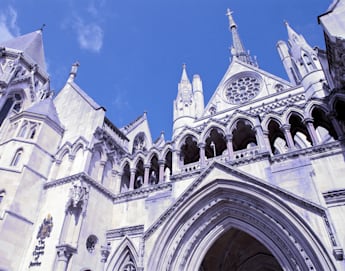Locations
On 2 November, Hollywood actor Johnny Depp has lost his libel claim against The Sun in the High Court, after the newspaper described him as a "wife beater", resulting in a spectacular own-goal for the Pirates of the Caribbean superstar.
The claim was something of a throwback to the heavyweight celebrity libel battles of the 1990s, which have been rarely seen since the passing of the Defamation Act in 2013.
Like many of those earlier claims, Depp's case boiled down to straightforward issue of truth. In this case, it was whether the allegation that Depp was a "wife beater" was substantially true or not.
To satisfy its truth defence, The Sun relied almost entirely on the witness evidence of Depp's ex-wife, the actress Amber Heard. As a consequence, one person's reputation was inevitably going to be vindicated, while the other's would be seriously tarnished as a result of the judgment.
There was very little in the way of complex defamation law in this claim; it was almost entirely determined on fact, with the judge having to choose whose account was more credible.
Specifically, the judge had to determine whether the 14 instances on which Heard stated Depp had assaulted her were substantially true.
At trial, both parties employed barristers who were criminal specialists to grill Depp and Heard in cross-examination on each of the instances of alleged assault.
In his judgment, Mr Justice Nicol held that on the balance of probabilities, 12 of the 14 instances were substantially true. The Sun's defence of truth accordingly succeeded.
What next for Depp?
Depp's solicitors have called the decision "perverse" and said that Depp will apply to the Court of Appeal for permission to appeal.
However, the judgment makes that very difficult. Mr Justice Nicol made his decision based on findings of fact against Depp, having seen live witness evidence. It is unlikely that the Court of Appeal will interfere with his judgment on that front.
Where the court has a stark choice between irreconcilable accounts, the credibility of the parties' witness evidence is of paramount importance.
An appeal court will interfere with findings of fact made by a trial judge in limited circumstances because it is the trial judge that has had the advantage of observing witnesses giving live testimony and because they have greater familiarity with the evidence as a whole. Accordingly, the trial judge's view on credibility is lent great weight by an appeal court.
For Depp, the judgment is an unmitigated disaster. Not only has the very issue that he was claiming to be false been held to be substantially true, unless he succeeds in his appeal, he will have to foot the bill for The Sun's substantial legal costs.
This article was authored by Nathan Capone, a director in the dispute resolution team at Fieldfisher.

